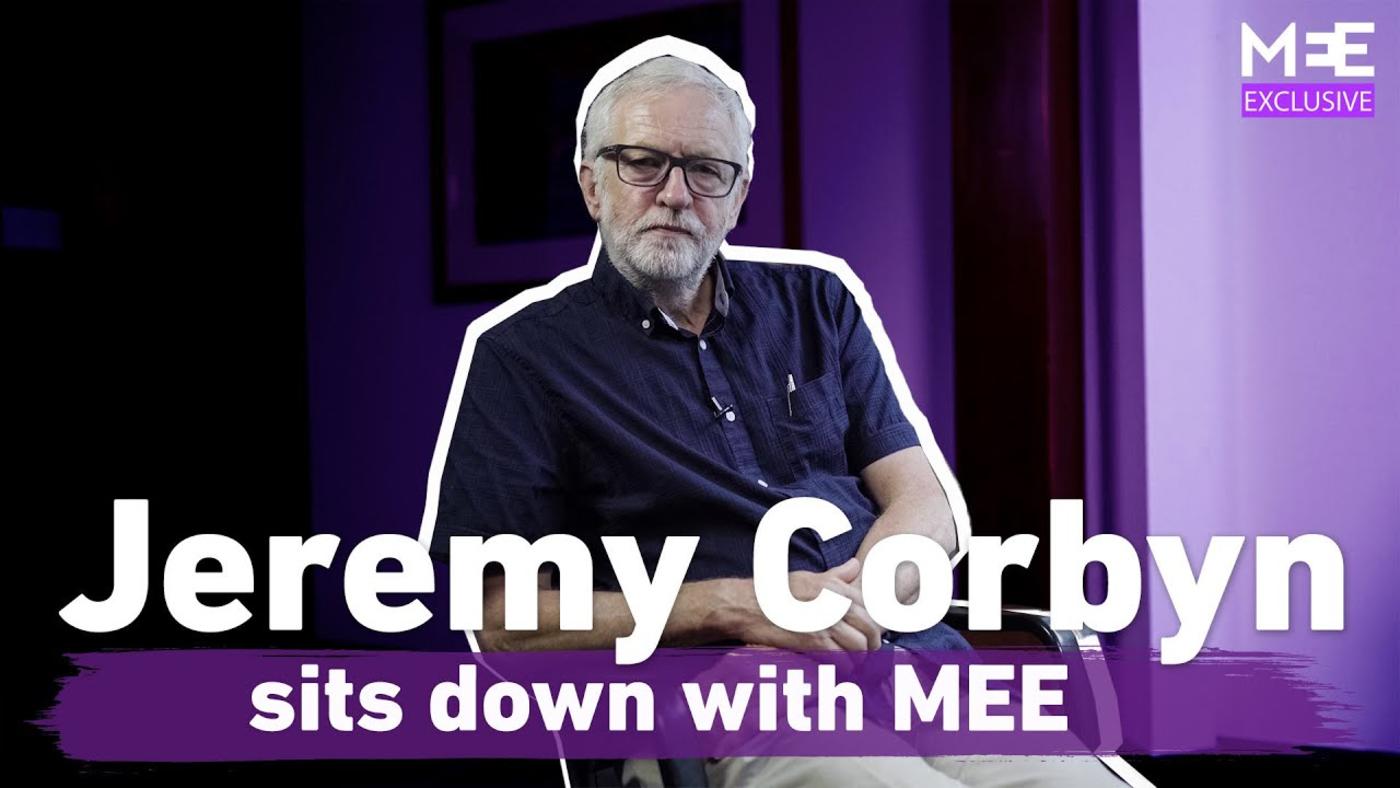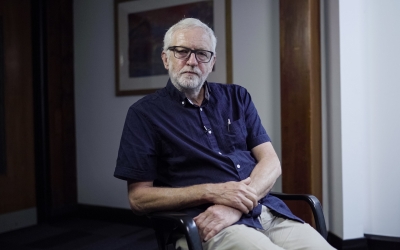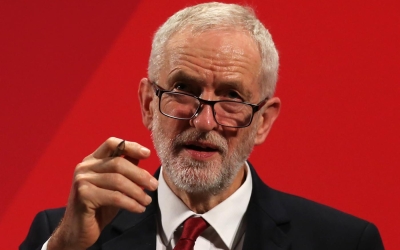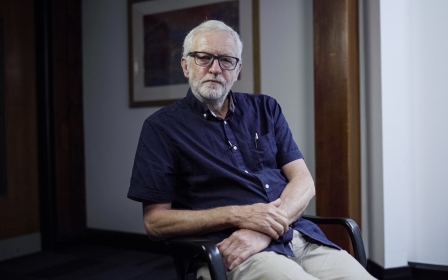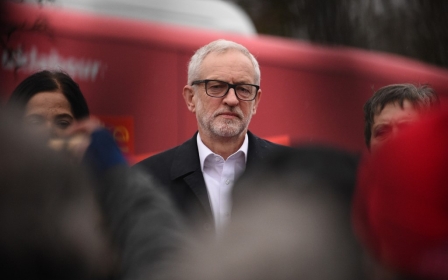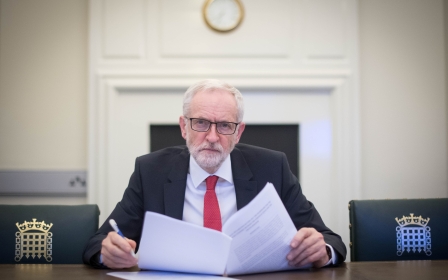Jeremy Corbyn: Coronavirus crisis proves I was right
Jeremy Corbyn, who spent much of his time as Labour leader fighting an internal civil war with the right wing of his party and a hostile press, has said he believes he succeeded in shifting the mainstream political discourse leftwards.
In an exclusive interview with Middle East Eye, Corbyn claimed credit for trebling Labour's membership, changing the political debate from austerity to one of an investment-led economy and bringing political attention to bear on the poorest and most vulnerable in society.
Corbyn, who stepped down in April following a defeat in last December's general election which left Labour with its fewest MPs since 1935, also said he felt vindicated by British Prime Minister Boris Johnson’s reaction to the coronavirus pandemic.
“The way in which the government eventually responded to the corona crisis indicates that everything I was saying in the general election in November and December about investment in housing, health, education and support for manufacturing industry jobs has now come full circle,” said Corbyn.
The British government has introduced schemes to support people and businesses unable to work because of the coronavirus lockdown despite fears of a looming recession. In April, Johnson said austerity measures would not be part of the government's approach in responding to the crisis.
Corbyn said that the government was now adopting principles of public spending which he had been advocating for in opposition.
“The principle of public spending in order to protect people in a crisis is now accepted as a political norm - it hasn't been ever since the austerity budget of 2010 that [then-chancellor George] Osborne brought in. So, I'm proud of that.
“I'm also proud of the way in which we developed the idea of a national education service, developed the idea of a green industrial revolution and, perhaps not as developed as I would have wanted, but we did go in the direction of a human rights, peace and democracy based foreign policy, including the proposal of a war powers act and a re-examination of our role in the world.”
'It's the black and minority ethnic communities and the oldest, poorest and most vulnerable people that are dying because of Covid.
- Jeremy Corbyn
The former Labour leader, who is still a member of parliament for the Islington North constituency in London, said coronavirus had exposed health inequalities around the world, the interdependence of countries and the vulnerability of healthy people in healthy countries.
“It's also exposed the inequalities in our own society. Where we're sitting now, in my office, in my constituency, three minutes’ walk from here there are several large housing estates. Those people going through lockdown: small flat, three or four children, no balcony, no play space - [it's] very hard for them.
“A more affluent middle-class family in a nice house in the suburbs: garden, work at home, it's not that difficult. These are the people that are suffering through this. It's the black and minority ethnic communities and the oldest, poorest and most vulnerable people that are dying because of Covid. It's exposed the fissures in our society. We've got to heal them.
A government-commissioned report published on Tuesday by Public Health England found that death rates from coronavirus among people from Black and Asian minorities were higher than among any other ethnic group, with people of a Bangladeshi background twice as likely to die as people from white British backgrounds.
The report also said that death rates in the most deprived areas were more than double the least deprived areas, and found a particular increase in death rate among people born outside of the UK and working in social care and nursing, as taxi and minicab drivers and as security guards.
The mortality rates from COVID-19 in the most deprived areas were more than double the least deprived areas, for both males and females.
Asked whether he believed the shift leftwards was permanent, Corbyn said he thought it was.
“I think it's a permanent shift because when people go out every Thursday night to applaud the NHS, it's very interesting. The whole country does it. Everybody, and they recognise we need our National Health Service. Now, there might be arguments about how it's run and so on, fine. But the principle of healthcare free at the point of need is one that is now universally accepted in the whole of society.
“And those people are going out applauding the NHS and now demanding PPE, now demanding decent pay. And they're no longer tolerating horrible language like 'unskilled migrant workers' who are care workers and cleaners. They suddenly realise if you didn't have a good cleaner in a hospital, you're going to get diseases. They are skilled workers as well.”
Middle East Eye propose une couverture et une analyse indépendantes et incomparables du Moyen-Orient, de l’Afrique du Nord et d’autres régions du monde. Pour en savoir plus sur la reprise de ce contenu et les frais qui s’appliquent, veuillez remplir ce formulaire [en anglais]. Pour en savoir plus sur MEE, cliquez ici [en anglais].


